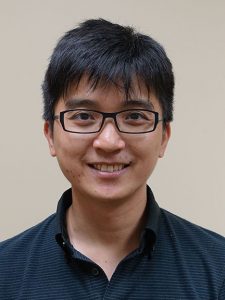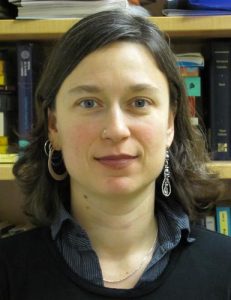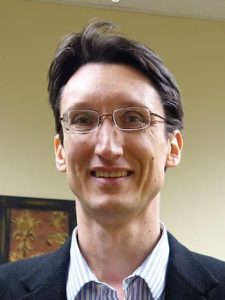Research: Combinatorics, Group Theory, and Topology
Faculty
Greg Bell
I am interested in large-scale topological invariants of infinite groups. A finitely generated group with a specified generating set carries a natural metric called the word metric. This turns the algebraic object into a geometric one. Since different choices of generating sets yield distinct metrics, the correct approach is to consider all such metrics equivalent and to focus on the topological properties of the space that are invariant of small changes. I am particularly interested in properties relating to large-scale coverings and notions of dimension. I work on asymptotic dimension and related notions as well as G. Yu’s property A.
Yu-Min Chung
Yu-Min Chung received his Ph.D. in Mathematics from Indiana University Bloomington in 2013 specializing in computational mathematics. His main research focuses are computational topology and applications to data analysis, called Topological Data Analysis. He has been collaborating with researchers from different scientific disciplines, including those from Dartmouth College to investigate ice at the Arctic, and those from Harvard Medical School to study human red blood cells. Chung’s other research interest is computational dynamical systems. He and his group developed one of the first algorithms to compute inertial manifolds, an object from dynamical systems. Prior to UNCG, Chung taught previously at the College of William & Mary, University of Kansas, and Indiana University. Chung has also advised undergraduate honor research students, and REU students, and his students have presented their research work in local and national conferences.
Talia Fernós
I am interested in the representation theory of infinite groups, in particular how groups act (or fail to act) on spaces of non-positive curvature. The class of non-positively curved spaces includes hyperbolic spaces, as well as infinite dimensional vector spaces. I am in particular interested in studying the cohomology of such group actions, as the study embodies a large class of interesting properties, such as Kazhdan’s Property (T), that have both geometric and measure-theoretic consequences.
Clifford Smyth
Dr. Smyth earned his Ph.D. in discrete mathematics from Rutgers University in 2001 under his adviser Mike Saks. After postdoctoral work at the Institute for Advanced Study, Carnegie Mellon University, and M.I.T. he joined the UNCG faculty in 2008 and is now an Associate Professor.
He works on problems in discrete mathematics stemming from combinatorial probability, theoretical computer science, discrete geometry, and combinatorial enumeration.
His research has been published in the Journals of Combinatorial Theory, Series A and B — Combinatorica — Combinatorics, Probability, and Computing — Discrete and Computational Geometry — Symposium on Foundations of Computer Science (FOCS) — Symposium on the Theory of Computing (STOC) — Symposium on Computational Geometry (SOCG) — Conference on Computational Complexity (CCC) and in other venues.
For Dr. Smyth’s research page, please go to https://www.uncg.edu/mat/faculty/cdsmyth/









